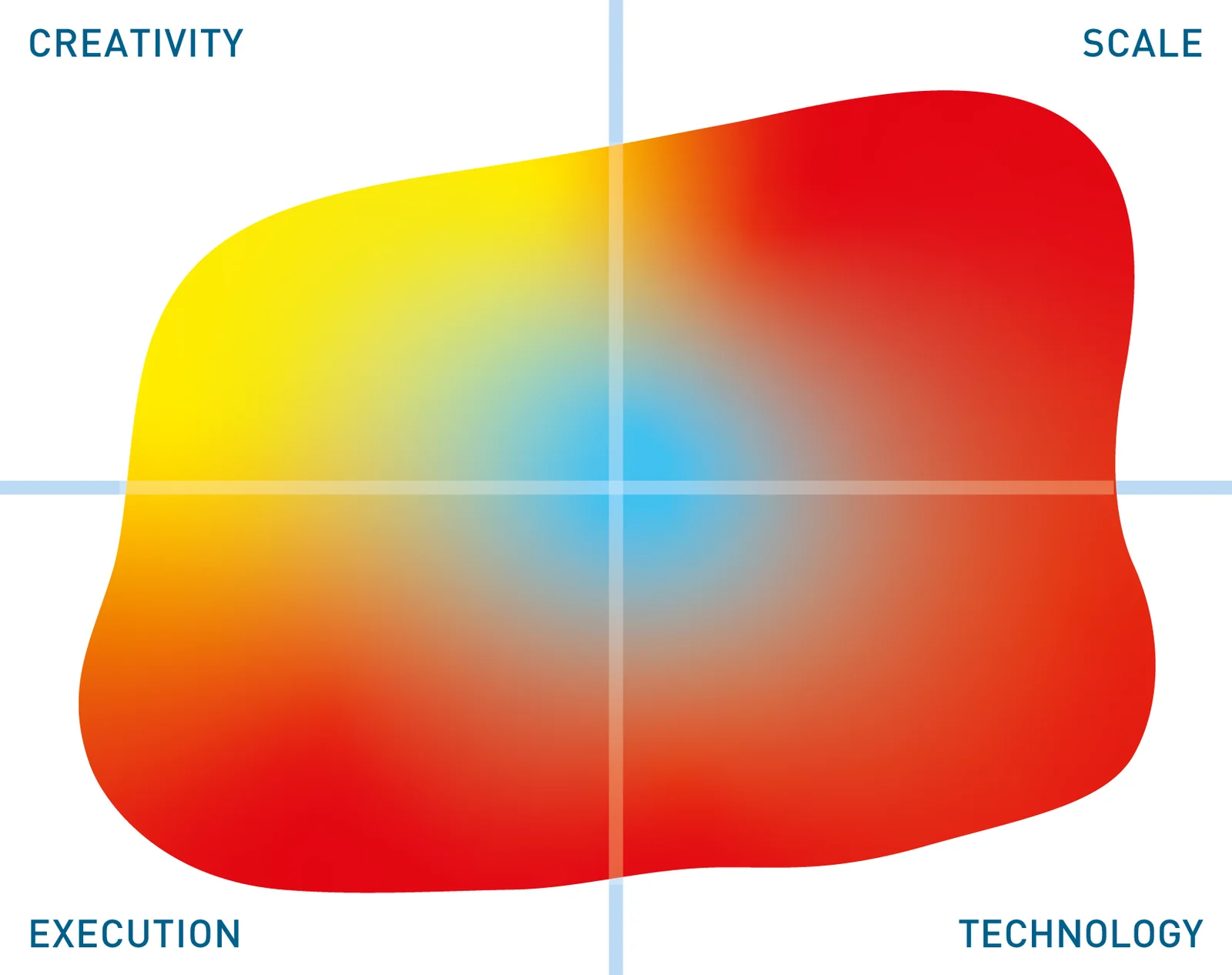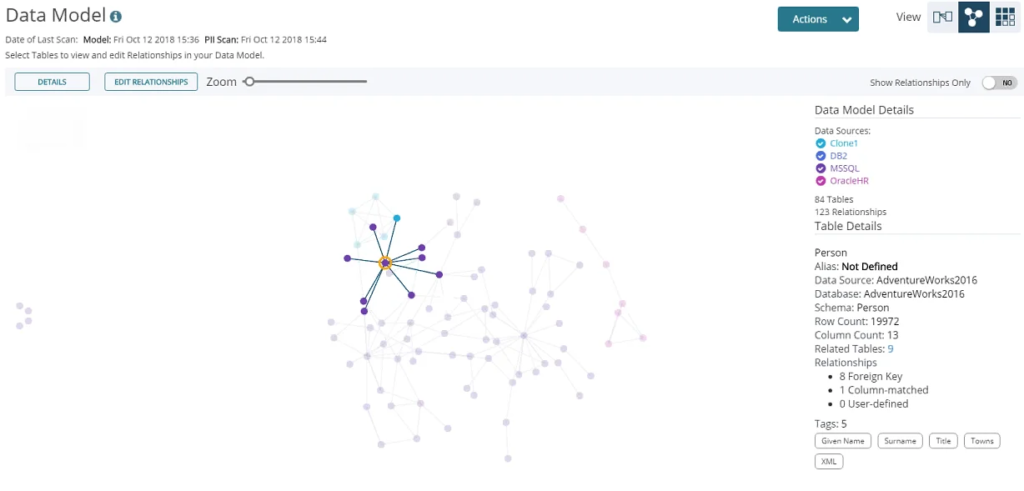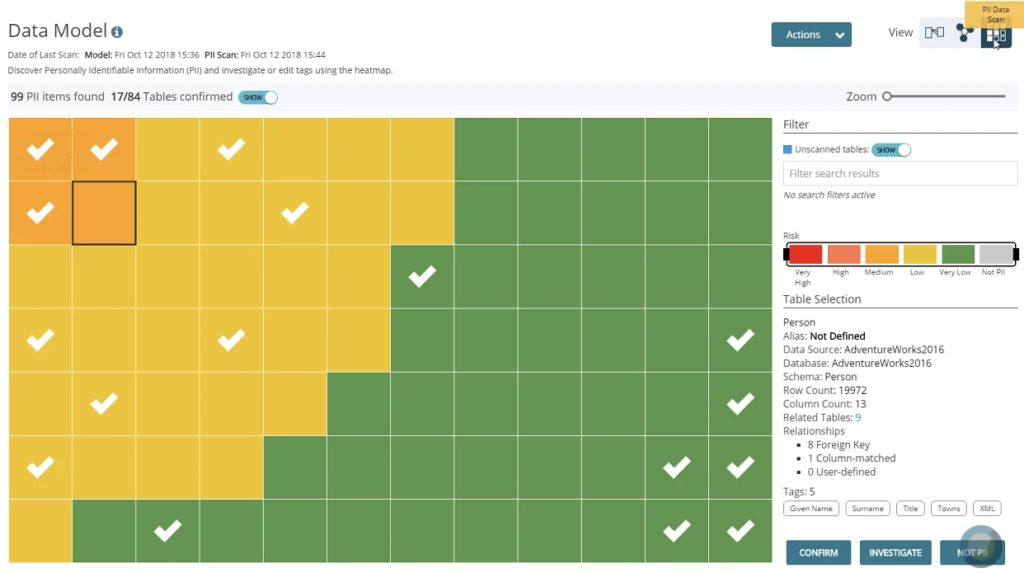CA Test Data Manager
Update solution on June 11, 2019

CA Test Data Manager (TDM) is a test data management solution that supports data subsetting and masking as well as synthetic data generation. Through these methods, it provides a standardised set of data that covers all possible tests, remains up-to-date, can be provisioned on-demand, and contains no sensitive data. In the process of creating this dataset, it will also profile your production data, creating a view of what data exists and where, while exposing and visualising any relationships that exist within your data. This aids in understanding your data and will inform your use of the product.
All of these capabilities are available via the Test Data Manager Portal, itself accessible through a web browser. This means that the entire test data management and test data provisioning processes can be accessed via a single interface. Moreover, each capability is equipped with guided workflows and instructional videos built right into the Portal, making them very easy and intuitive to use.
CA TDM is currently in version 4.7. It supports a variety of data sources, which as of 4.7 include DB2, Oracle, SQL Server and PostgreSQL, and the Portal itself is even available to deploy as a Docker container. In addition, CA TDM integrates with CA Agile Requirements Designer, CA’s test automation product, and supports both mainframe and distributed environments.
Customer Quotes
“With CA Test Data Manager we have evolved beyond manual processes to a powerful automated tool that can generate massive amounts of data in a very short amount of time.”</br/>
Manheim
“CA Technologies offered a compelling solution with its integrated tools that provide seamless, end-to-end test management. In addition, CA Technologies solutions were able to manage all the technologies used across our applications, which other solutions were unable to do.”</br/>
Williams
Engaging with the TDM Portal begins by defining your environment (the collection of data sources you are using) and your data model. The latter consists of profiling and tagging the columns within your environment as well as detecting any relationships between your tables, columns and data sources. This is all done automatically, but can be modified manually after the fact. In addition, some tags will be classified as sensitive, thus helping you identify sensitive data. This is important for data masking and for achieving compliance with GDPR and other regulations. Once created, your data model is leveraged inside a variety of visualisations, including a scatter graph displaying the relationships within your environment and a heat map of the risk (usually equating to the amount of unmasked sensitive data) attached to each of your tables. These are shown in Figures 1 and 2, respectively.

Fig 1 Visualising data relationships in CA Test Data Manager
In terms of generating your test data, CA TDM supports both subsetting and synthetic data generation. In support of the former, it also provides data masking, via masking rules applied to either columns or tags. Over eighty masking rules are provided by default, and more can be added manually if required. The masking process itself can be applied to any number of environments at once, can be scheduled to run automatically, and displays a preview of the end results before committing them. You can also (strictly optionally) choose to retain your ‘pre-masked’ data after the masking process has finished, allowing you to easily revert the changes if necessary. Moreover, deleting any pre-masked data is an easy process that is expedited by the Portal. In addition, CA TDM keeps masked data referentially intact, is fully auditable, can mask millions of rows in a matter of minutes either in-place or in-flight, and is demonstrably compliant with EU GDPR, GLBA, HIPAA, PCI DSS, PIPEDA and other regulations.
One of CA TDM’s standout features is its synthetic data generation. It relies on a user-created model of valid test data attributes. Once this model is built, CA TDM can automatically generate synthetic data that achieves up to one hundred percent coverage (according to your test model) while still being representative of your production data (according to your data model). This includes covering outliers, unexpected results, boundary conditions and negative paths.
The product also makes test data easily accessible. Via the Portal, you can set up self-service and automated delivery of test data to testing teams. As you build your test model, CA TDM will dynamically build a test data warehouse (or mart) that functions as a central library of test data that can be reused on demand. In addition, there is a ‘test matching’ feature that allows decoupling of test data from test cases so that testers can dynamically find and reserve test data as required. This is enhanced by the data virtualisation capabilities provided by the product’s Virtual Test Data Manager feature, which allow you to near instantly create and distribute (via self-service) virtual copies of your test data sets.

Fig 2 Visualising risk in CA Test Data Manager
Although several vendors in the space now offer synthetic data capabilities, and consequently CA no longer enjoys the near-monopoly it had on those capabilities in the past, CA TDM remains one of the most mature synthetic data generation solutions available on the market. In particular, its ability to generate test data that is representative of your production data at a macro level – that is, when examining the dataset as a whole, not just individual data entries – is rare, if not unique. What’s more, the product also includes highly competitive data subsetting, masking and profiling capabilities. This makes CA TDM an ideal solution if you want to combine synthetic data with data subsetting within a single platform, or otherwise add synthetic data generation to an existing data subsetting framework.
CA TDM also emphasises and provides efficiency in generating and obtaining test data. The Test Data Manager Portal provides an easy-to-use one stop shop for test data management and provisioning, while the test data warehouse, test matching, self-service and automated delivery of test data are all valuable capabilities that facilitate reuse and make it quicker and easier to set up automated tests. This is further enhanced by integration with CA Agile Requirements Designer, itself a leading test automation product.
The Bottom Line
CA TDM is a comprehensive test data management solution. It was the first product in the market to support synthetic data generation, and its capabilities in this regard remain some of the most mature in the space. Moreover, all of its features are, as of its recent updates, accessed via a single, intuitive web portal, making it easier and faster to use than ever before. In short, it is a clear market leader.
Related Company
Connect with Us
Ready to Get Started
Learn how Bloor Research can support your organization’s journey toward a smarter, more secure future."
Connect with us Join Our Community
